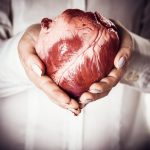What is an abscess?
An abscess is a collection of pus inside the body, usually from an infection. If near the surface of the body, pus may break through the surface and drain.
Abscesses can develop just about anywhere in the body and can be painful. Often treatment is needed to heal an abscess and to stop infection spreading, so see your doctor if you think you might have an abscess.
What are the different types of abscesses?
There are many different types of abscesses, including:
- skin abscesses or boils — often affecting the face, throat, armpits or groin
- dental abscesses — inside the tooth or gum
- pilonidal abscesses or cysts — in the crease of the buttocks
- anal or anorectal abscesses — in or around the anus
- breast abscesses — can develop if mastitis is not treated quickly
- vaginal abscesses also called Bartholin’s cysts
Abscesses can also develop in other parts of the body, such as the brain, kidney, or other organs, usually as a complication of an existing medical condition.
What are the symptoms of abcesses?
The symptoms of an abscess depend on where it develops.
If you have an abscess under the skin or in the mouth, symptoms may include swelling and redness in the area. As pus builds up, it may cause pain. You may also have swollen glands (lymph nodes) and a fever.
If you have an internal abscess, you may have pain in the affected area, fever, and generally feel unwell. Imaging tests such as ultrasound may be needed to find the problem.
What causes an abscess?
Abscesses usually develop when you have a bacterial infection that your immune system tries to contain. In the process of fighting the infection, pus (a liquid or semi-liquid mixture of bacteria and dead cells) is produced.
Other causes include non-bacterial infections, ingrown hairs, or a blocked gland or duct.
How are abcesses treated?
Small abscesses can sometimes burst and heal on their own. However, larger or internal abscesses need to be drained by a doctor (sometimes involving surgery). You may also need to take antibiotics.
If you have an abscess, follow instructions from your doctor on taking care of it. It will normally be covered by a bandage. Always wash your hands with soap and water before you change the bandage.
If the abscess is in your mouth, put a cold compress on the outside of your cheek to control the swelling and see a dentist immediately.
If you have an abscess that hasn’t been drained, you can use heat to relieve symptoms. Put a towel over the abscess and use a heat pack or heating pad for 20 to 30 minutes. Remove the heat source if your skin gets red.
If you have an abscess, seek medical attention if you develop a fever, chills, the area around the abscess get warm or the redness and swelling get worse.
Once an abscess has drained, it usually heals quickly and doesn’t cause long-term consequences.
Can abcesses be prevented?
To help prevent abscesses:
- keep your skin clean and healthy
- avoid scratches or nicks to your skin
- eat healthily to build your immune system and keep a healthy weight
- avoid smoking


